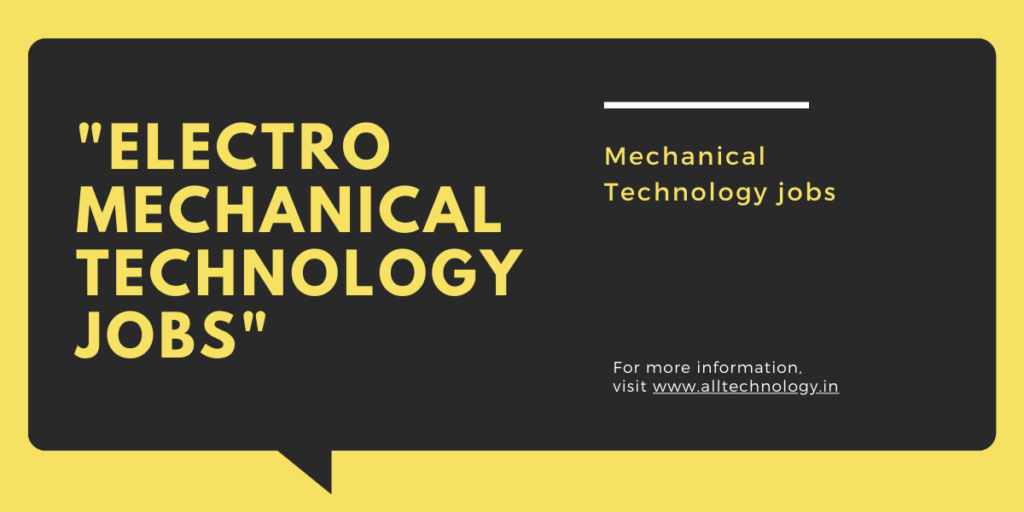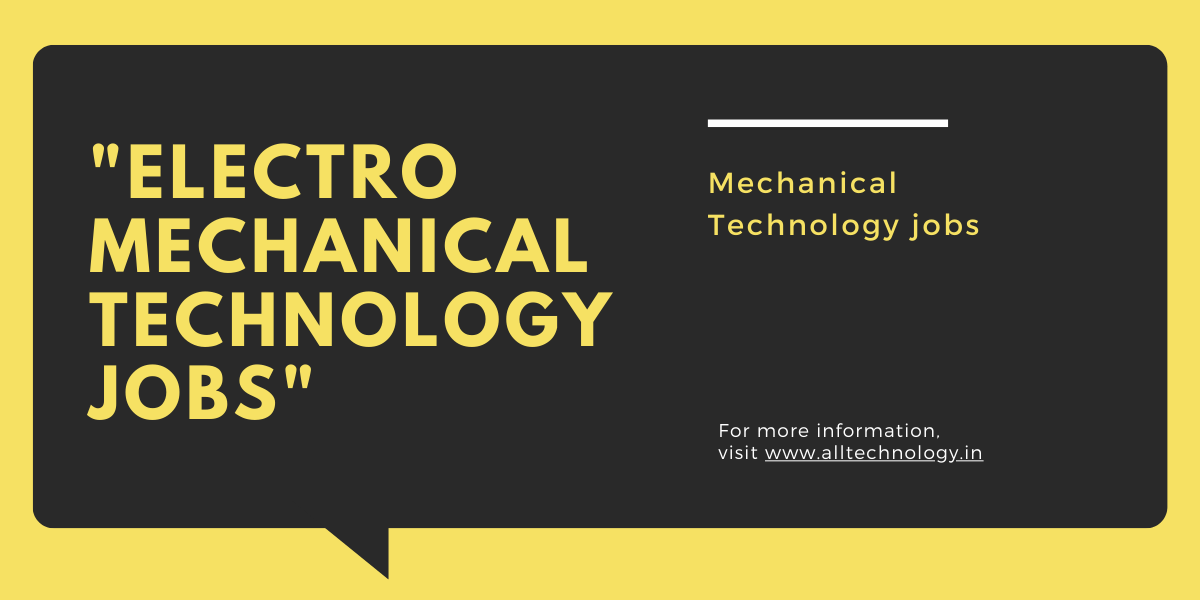Introduction
Contents
hide
Hello Bloggers welcome alltechnology blog. In this blog you will learn “electro mechanical technology jobs”. So friend, I will tell you “electro mechanical technology jobs”what is the reason behind it and what should you do for it.

Electro-mechanical technology jobs encompass a wide range of roles that involve both electrical and mechanical aspects. Here are some examples of such positions:
- Electro-Mechanical Technician: These professionals work with precision mechanical devices, electro-mechanical, and optical equipment. They aid in design, construction, adaptation, repair, and maintenance of these systems1.
- Field Service Technician: Field service technicians specialize in maintaining and repairing equipment in the field. They often deal with electro-mechanical systems and may need to travel to various locations for their work.
- Maintenance Technician (Electrical Bias): These technicians focus on maintaining and troubleshooting electro-mechanical equipment. They may work in manufacturing plants, recycling facilities, or other industrial settings1.
- Manufacturing Technician: These professionals assemble intricate electro-mechanical components and sub-assemblies. They follow manufacturing documents and drawings to ensure precise assembly1.
- Electromechanical Engineer: While not a technician role, electromechanical engineers design and develop systems that integrate electrical and mechanical components. They work on projects ranging from robotics to automation systems2.
- Aircraft Crew Seat Technician: These technicians handle the maintenance and repair of aircraft crew seats. Their work involves electro-mechanical equipment fault finding, disassembly, reassembly, and product testing1.
- Engineer (Electro-Mechanical): Engineers in this field perform tests, gather data, and write reports related to electro-mechanical equipment. They collaborate with other team members to optimize systems1.

1 thought on ““electro mechanical technology jobs””